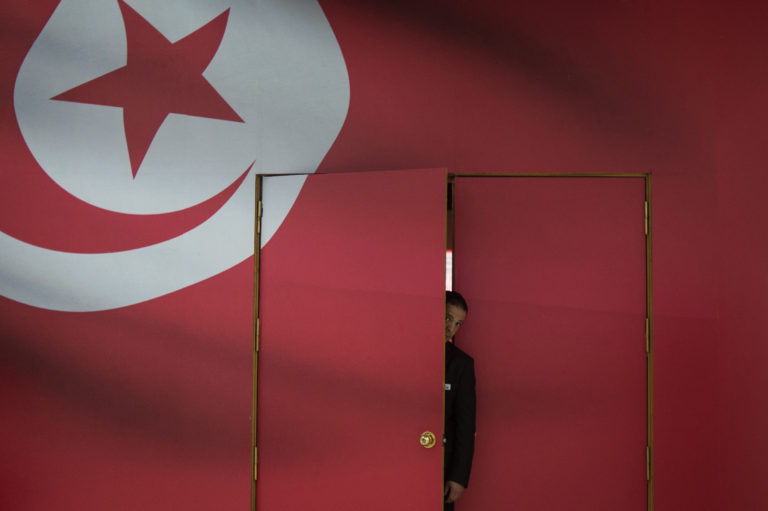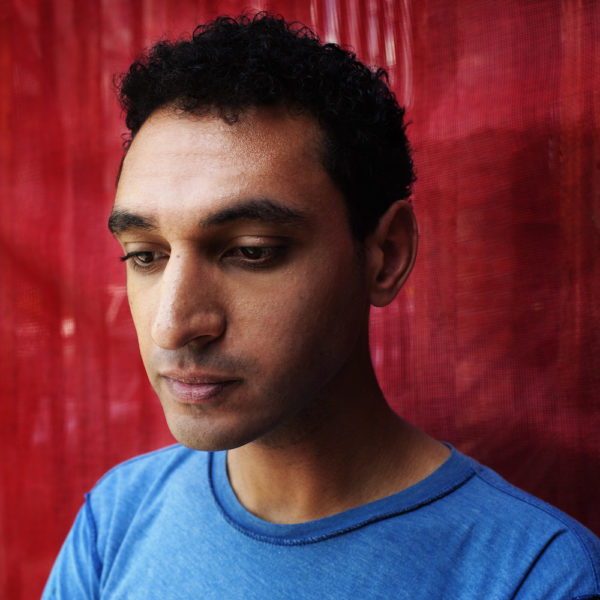
Image by Chaoyue 超越 PAN 潘.
An Invocation of Thankfulness
It’s strange to think that in our tormented world over a billion and a half people raise their voices in uniform thanks every day and multiple times a day. But that’s exactly how Muslims begin their prayers.
Regardless of sect or geography, all Islamic prayers begin with an invocation of thankfulness. In times of particular stress, many Muslims repeat these lines of gratitude to themselves, facing tribulation with an expression of appreciation for all that is good in the world and taking joy in the force that guides the alameen: the multiple worlds, cosmos, universes, and dimensions; the spirit world as well as the physical one; the world of human beings, jinn, angels, and all creatures of earth, light, and fire.
The statement, Al-hamdu lillahi rabbil ‘alamin, meets trial with grace while also acknowledging that there are forces at work that are bigger than us and beyond the scope of our ever-widening field of vision.
The challenges facing my generation are immense. Our global trials are well-known, but it is also worthwhile to explore our personal ones: our emotional challenges made specific to the psyche of our age. I’ve often thought of us millennials as a sort of lost generation. Not Hemingway’s generation of disillusioned, post-war youths living in the fast lane (though the dissolution is certainly with us) and certainly not the loss of “the flower of our youth” as the term was used in the Great War (though the losses inflicted on us by a world in flames are also certainly with us). I’m referring to a familiar and pervasive listlessness — to a generation that meets a world of unprecedented possibilities with insecurity, suspicion, and intense dispassion.

We are living longer lives than ever before and so the reasoning goes that we have more time than ever to “figure out what to do with our lives.”
We use those words as though this task in life is a transient, mundane chore rather than treating our precious time on earth as a never-ending series of transformations, layers, and organic growth. Instead of meeting myriad options with debilitating uncertainty, we can exult in seeing endless opportunities. Instead of allowing our pain to lead us to constant worry and bitterness, we can find countless reasons to meet our sorrows with thanks.
Writing in the last decade of his long life, Stanley Kunitz penned the following lines in which love and the belief in that force that guides the universe is almost an act of defiance:
In my darkest night,
when the moon was covered
and I roamed through wreckage,
a nimbus-clouded voice
directed me:“Live in the layers,
not on the litter.”
Though I lack the art
to decipher it,
no doubt the next chapter
in my book of transformations
is already written.
I am not done with my changes.
In his essay “Between Worlds,” Edward Saïd described the phenomenon of writers and artists meeting the unique pain of exile by trying to find a “home” in their work:
“One achieves at most a provisional satisfaction that is quickly ambushed by doubt, and a need to rewrite and redo that renders the text uninhabitable.”
This solitary pain of exile is one that we have all felt because exile is loss and dispossession, not only of a country or a cherished place but also of a treasured idea, a loved one, a pet, a partner, a parent. This banishment from something we care for is fascinating to think about and terrible to experience. But even here, where there is no refuge and the constant doubt has rendered everything uninhabitable, Saïd finds his spark of defiance:
“Better that, however, than the sleep of self-satisfaction and the finality of death.”
To be sure, the razor-sharp focus with which Mozart found himself creating his Symphony in E-flat at the age of eight is a rarity, and will always be, just as Immanuel Kant’s studies of Leibniz in his teens or Mahmoud Darwish’s early mastery of classical Arabic poetic forms can safely be regarded as the miraculous exception to the rule.
But in our age of unbridled possibilities served to us on a digital platter, we millennials can stand to be generally less ambivalent. We can choose to meet the challenges of our lives and our world with resolution, bravery, and thanks. We can choose to ignite the fire of focus in the hope that it will light our way to gratifying success. When failure and heartbreak come, as they surely will, we can choose how we will respond to them.
The act of creation is a synthesis of defiance and joy: an act of certainty in an uncertain world. A friend recently asked me about my method of working as a composer: “You must have incredible discipline in your working routine in order to have created the body of work that you’ve created already?”
Discipline and routine are part of the equation, yes, but so are the dual forces of healthy obsession and focused, unwavering commitment. I have chosen to allow these things, together with a constant belief in something larger than myself, define me in my personal as well as my musical life. When I’ve encountered hurt and disappointment on any of these fronts, I’ve renewed my conviction in the bigger picture. I believe that we can, all together, be the richness that a generation undreamed of can take to their hearts.
In the face of uncertainty, offer thanks.
Meet pain with a belief in the larger hand. Don’t simply remain focused on the light at the end of the tunnel: think about the ecstasy of our arts, the cornucopia of magic in every breath we take, the sublime genius of our sciences, the infinite beauty of the alameen. Don’t be content with the light at the end of the tunnel. Think about the impact of your life and the forces of history itself!
Meet your challenges today with creative defiance, focus, and thanks. If your job has been to worry endlessly and your all-consuming worries have yielded nothing of merit then get a new job! Gather your closest friends and loved ones around you and allow them to help you write a letter of resignation to all your fears and apprehensions. Look beyond the specter of sadness, betrayal, and heartbreak and open your eyes to the billions of beautiful people who would cherish and nurture you with kindness. Let every cell in your body explode with gratitude for them. Let every instrument in the grand orchestra of your soul go berserk.



Share your reflection